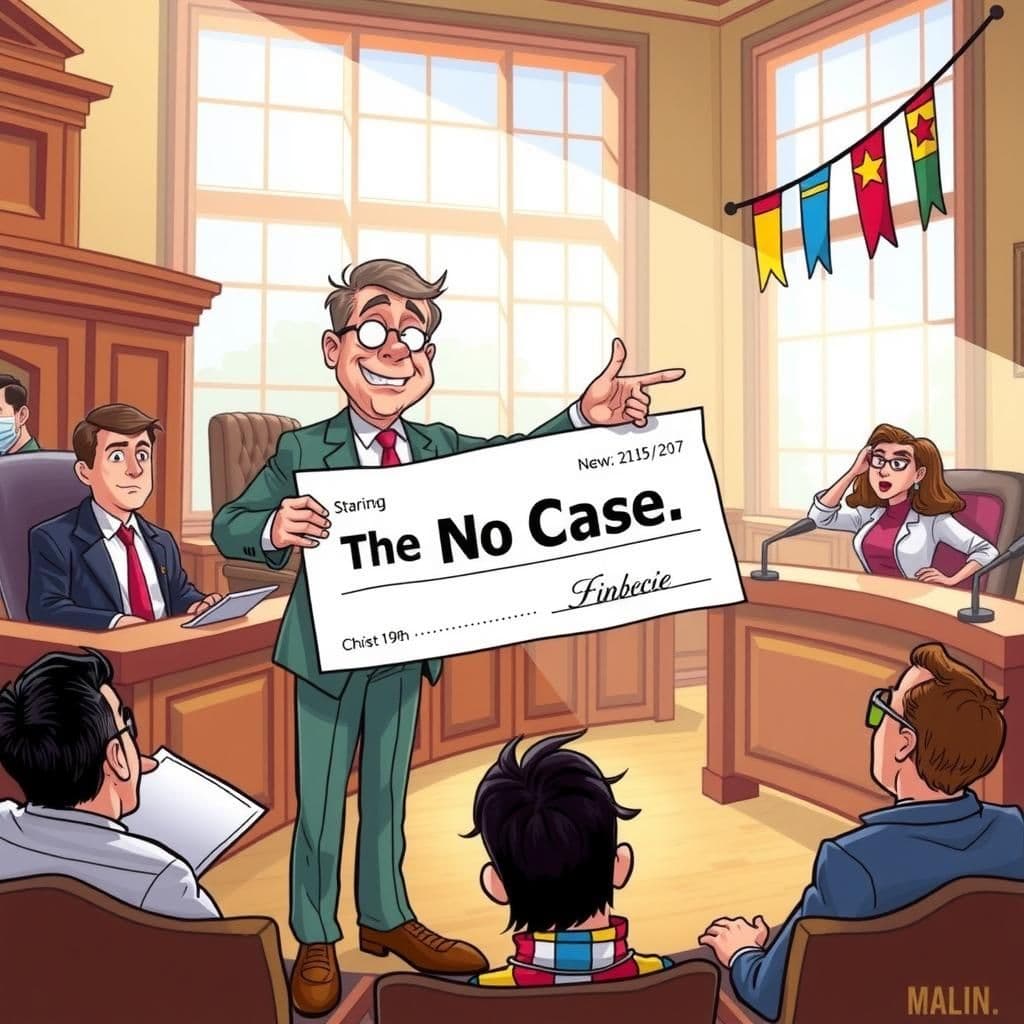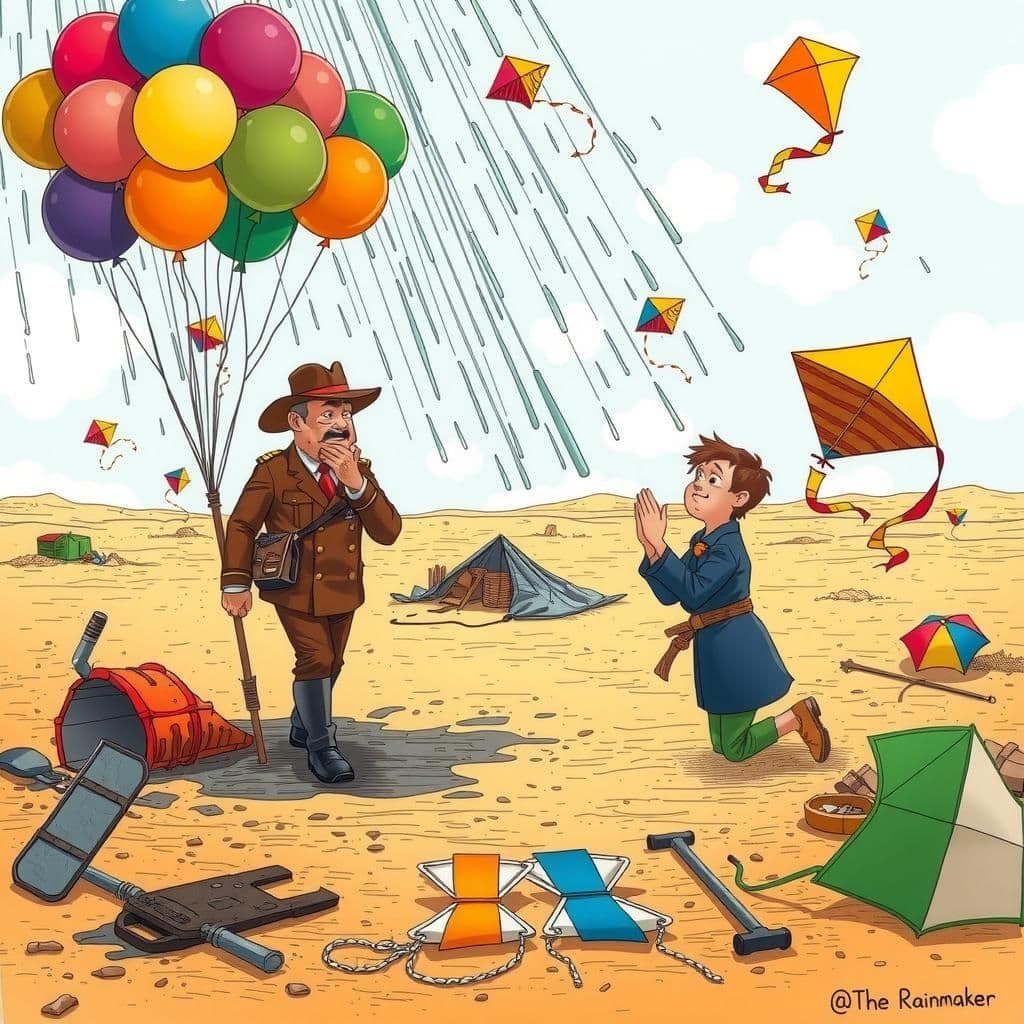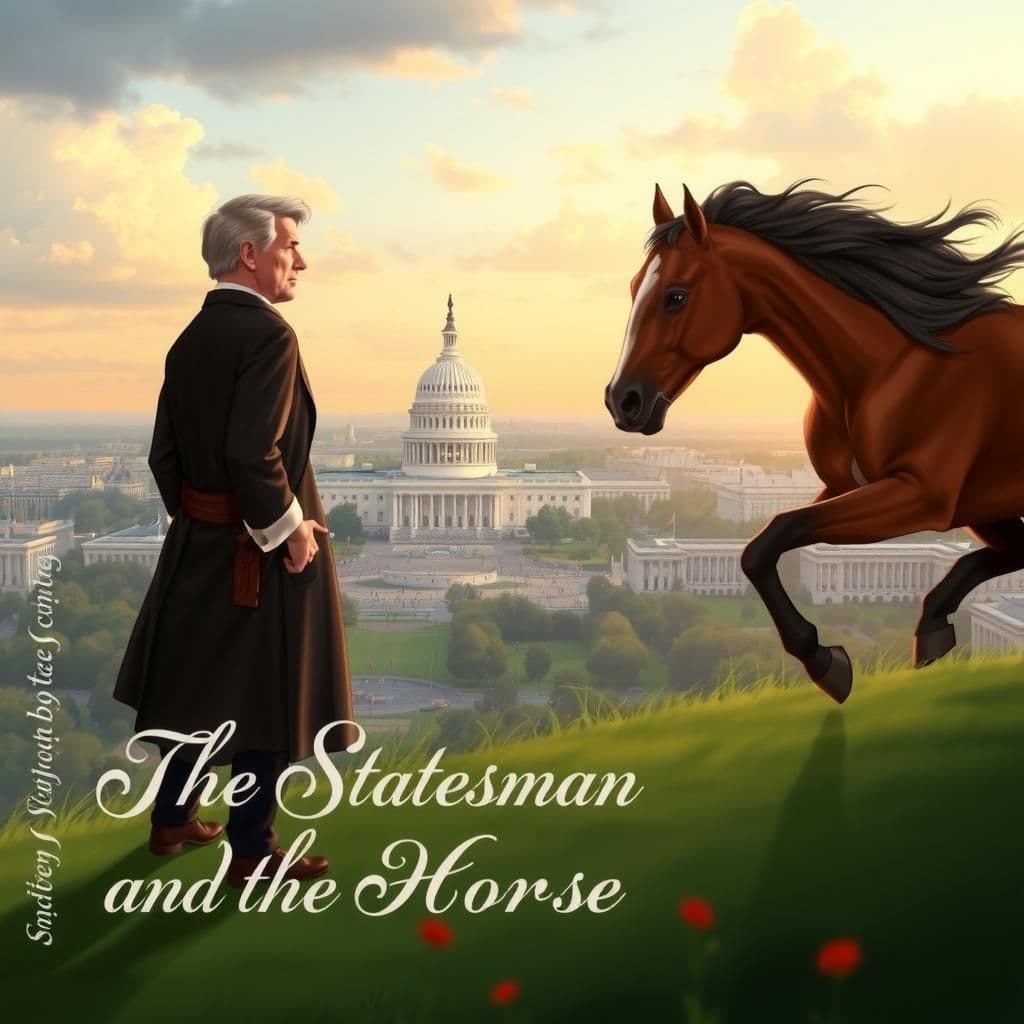The No Case

Story Summary
In "The No Case," a statesman humorously challenges the charges against him after being indicted by a Grand Jury, requesting dismissal due to a lack of evidence. He presents a check as proof of this absence, which the District Attorney finds so compelling that he claims it could exonerate anyone, showcasing the wit often found in entertaining moral stories and short tales with moral lessons. This life-changing story highlights the absurdity of justice and the clever use of humor to navigate serious situations.
Click to reveal the moral of the story
The story illustrates that sometimes, the absence of evidence can be more powerful than any accusation.
Historical Context
This story reflects a satirical commentary on the legal and political systems of the late 19th to early 20th century, particularly in the United States, where corruption and the influence of wealth in judicial proceedings were prevalent. It echoes themes found in works by authors like Mark Twain and Ambrose Bierce, who often critiqued social and political injustices through humor and irony, suggesting that the powerful could manipulate legal outcomes to their advantage. The use of humor to address serious issues of morality and ethics in governance is a common thread in American literature of that era.
Our Editors Opinion
This story highlights the dangers of corruption and the influence of wealth on justice, reminding us that moral integrity can be compromised in modern society when power and money intersect. For example, in a contemporary scenario, a wealthy businessperson facing serious legal charges might leverage their financial resources to hire top-tier legal representation, potentially swaying the outcome of their trial despite evidence against them, thereby illustrating the ongoing struggle for true justice in a system that can be influenced by economic disparity.
You May Also Like

The Rainmaker
In "The Rainmaker," a Government Officer embarks on an elaborate mission to induce rain in a decade-long drought using balloons, kites, and explosives, ultimately leading to his downfall. The only survivor, Ezekiel Thrifft, a mule-driver who is revealed to be a minister working for the equipment supplier, humorously claims his prayers brought the rain, highlighting the absurdity of the situation. This short moral tale contrasts the seriousness of the rain-seeking endeavor with the unexpected truth, serving as a fable that reminds us of the often overlooked roles played in grand narratives.

Wasted Sweets
In this thought-provoking tale, a candidate canvassing his district kisses a baby in a carriage, believing the moment to be heartwarming. However, he is confronted with the irony that the baby belongs to an orphan asylum, and the nurse caring for it is an inmate of an institution for the illiterate, deaf, and dumb. This story serves as a reminder of the deeper moral lessons often found in well-known moral stories, encouraging personal growth through storytelling with morals.

The Statesman and the Horse
In "The Statesman and the Horse," a culturally significant moral story, a statesman who once saved his country encounters a racehorse rushing back to Washington, revealing that its master, another statesman, is hastily pursuing personal gain after a national crisis. This quick read story with moral highlights the contrast between the racehorse's loyalty and the statesman's disillusionment, ultimately exploring the moral complexities of ambition and leadership. Through entertaining storytelling with morals, the narrative encourages reflection on true motivations behind actions in positions of power.
Other names for this story
The Evidence Denied, Case of No Proof, The Absence of Justice, Lack of Conviction, The Dismissal Request, No Proof, Just a Check, The Case Closed
Did You Know?
This story humorously critiques the intersection of justice and wealth, suggesting that financial resources can influence legal outcomes, thus highlighting the disparities in how justice is administered based on social status.
Subscribe to Daily Stories
Get a new moral story in your inbox every day.